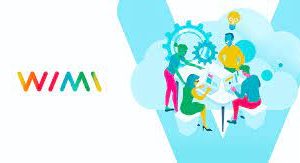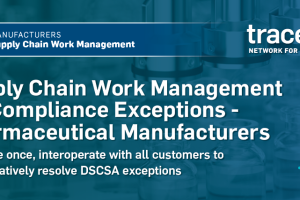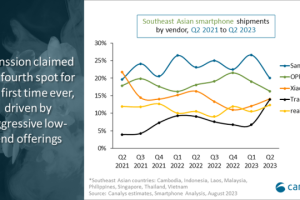Prof. Suptendra Nath Sarbadhikari, Project Director for the National Health Portal, in conversation with Healthtechnology.in, share his valuable inputs on medical informatics in the country
You have pioneered in various fields. Please tell us more on your journey from a Medical Doctor to Project Director for the National Health Portal (NHP).
I am a medical doctor (University of Calcutta, 1989) and have a PhD in Biomedical Engineering (1995) from IT, BHU, Varanasi (now IIT-BHU). Currently I’ve joined the Ministry of Health and Family Welfare (MoHFW), Government of India, as the Project Director for the Centre for Health Informatics of the National Health Portal (NHP) at the NIHFW, New Delhi.
I have been the Founder and Director of Supten Institute (offering online courses on health informatics) and a Visiting Professor in Health Informatics at Bangladesh Institute of Health Sciences, (now Bangladesh University of Health Sciences) Dhaka, Bangladesh. I have been the Founding Director of CAL2CAL Institute, a faculty member with the Manipal Group, IIT Kharagpur (School of Medical Science and Technology), Amrita group (Course Coordinator for M.Sc. Medical Informatics in AIMS, Kochi and for M.Tech Biomedical Engineering in Amrita University, Coimbatore) and PSG group (Founding Chair of Biomedical Informatics in PSG IMS & R and Visiting Faculty for BME in PSG Tech). Other than that I had done my Post-doctoral Fellowship at the Machine Intelligence Unit of Indian Statistical Institute, Kolkata. My areas of expertise are in Standards for Health Information Exchange (HIE), Requirements analysis and management in Healthcare information technology, e-learning; medical journalism and clinical decision support systems. I am the Immediate-Past Chairman of HL7 India. I’m also a member of the Project Review and Steering Committee of Indian iNRC of SNOMED-CT; and of the EHR Standards Implementation Committee under the MoHFW, Government of India.
Could you please throw some light on the project that you are working at Centre for Health Informatics?
Well, that I can tell you through the milestones, achievements the project has gained till now.
Milestones:
- Recommendation for India Health Portal by the National Knowledge Commission: 2008
- Formation of Working Group (of which I was a member) for Detailed Project Report (DPR) preparation of the NHP: 2009
- Approval from MoHFW: June 2011
- Steering Committee of the NHP (SCNHP) formation: August 2011
- SCNHP meeting – 1st held on 27/9/11
- Project Director, Centre for Health Informatics (PD, CHI) of NHP (myself) – joined on 23/01/13
- NHP made live for beta testing: 15/11/2013 (Beginning of 2-year Pilot Project in NIHFW)
- NHP formally launched by Shri J P Nadda, Union Minister for H & FW: 14/11/2014
- Currently in Pilot Project mode till 14/11/2015
Achievements:
- Information on Health and Diseases – especially current public health alerts – through validated content, Sliders, and Infographics
- Information on Directory Services – Hospitals, Blood Banks, Ambulances – according to state / city / PIN Code
- Information on Regulatory Laws, Protocols, Standards, Health Policies and Programs, Committees and Commissions
- Professional Information
- Information on Disaster Management
- Information on First Aid
- Information on AYUSH
- Information on Careers
- General Forum for general discussions among common persons, patients, care givers and healthcare professionals: http://www.nhp.gov.in/forum/14
- Professional Forum for discussion among health care professionals: http://www.nhp.gov.in/forum/15
- Help Desk for Implementation of EHR Standards:http://www.nhp.gov.in/electronic-health-record-standards
- Forum for discussing implementation of EHR: http://www.nhp.gov.in/forum/18
- Feedback on the content on NHP: http://www.nhp.gov.in/contact
- Social Media – Facebook: https://www.facebook.com/NHPINDIA more than 2200 Likes so far
- Social Media – Twitter: https://twitter.com/NHP_INDIA a – more than 2500 followers so far; also with hashtag #nhportal
- Translation of limited content in Hindi, Tamil, Gujarati and Bangla has been initiated
- Voice web is also being included for getting information through phone calls, especially to reach out people where there is no Internet
- Mobile applications also being developed to access the NHP through mobile phones (currently on Directory Services – location / GPS based)
How do you perceive the state of Medical informatics in India?
In 1995 I had written a Guest Editorial in JIMA (Journal of the Indian Medical Association) titled: “Medical Informatics – are the doctors ready?” http://www.ncbi.nlm.nih.gov/pubmed/8834135
Unfortunately, the answer seems to be negative, even two decades later! Nevertheless, India has made considerable progress with the notification of Standards for EHR: http://www.nhp.gov.in/electronic-health-record-standards
Further, India has also got the country license for the controlled medical vocabulary standard SNOMED-CT by becoming a member of IHTSDO: http://www.ihtsdo.org/member/India
Health is a state subject in India and various states have undertaken (often independently) various projects to implement eHealth in their respective states. The Digital India initiatives also mandate the adoption of eHealth. To facilitate the smooth adoption of eHealth, the present central government is in the process of setting up the National eHealth Authority (NeHA). I personally believe that once the NeHA is formed, its first job should be to formulate a realistic National eHealth Strategy / Policy, in consultation with all the stakeholders.
India is a country where accessing basic health facilities is a tough task for a common man. How do you think that technology, say Health Informatics can bring any change in their life?
If you want to hear the magic word “Telemedicine”, that may not be a panacea! We definitely need proper water, nutrition and sanitation (Swachchh Bharat will lead to Swasth Bharat) to achieve better health. Of course technology / informatics will act as an enabler for all such efforts. Improving access / infrastructure will also be a strong enabler.
What do think are the major challenges in optimizing the medical informatics in the country?
In 2005 I had written an article stressing on the need for a flexible syllabus for health informatics, according to the needs of the various users – like, healthcare delivery professionals, ICT professionals, and public health experts: http://www.ncbi.nlm.nih.gov/pubmed/15931799
Change management is another area that needs to be given adequate emphasis. When a flyover is being built, it does cause a lot of inconvenience to the residents of that area. However, once the flyover is completed, it is likely to save a lot of time of those same people. Same is for an eHealth system. A change manager has to make the users aware and prepare them for the transition during the building phase of an eHealth system. Moreover, end users must be actively involved right from the requirements gathering phase and throughout the development / modification phases of the system. After all, “people” are equally important as the “tools / technology” and “processes / workflows” for any eHealth system to succeed.
With the growing technology in every field today, do you think there are any significant changes in the field of bio-medical engineering?
Any technology will evolve with time and use. As the users get used to useful features, they naturally start demanding more. That is how biomedical engineering is also growing. It had been born as an offshoot of the Second World War – the weapons industry needed to sell their products somewhere and so healthcare industry became a catchment area. Initially robotic surgery equipment were made for cardiac surgeons – but they didn’t find it very useful so they sold it to urologists who made far better use of the robotic surgery equipment. Now that is also being commonly used for tele-surgery!
What’s your opinion on including medical informatics as one of the major subject in medical education?
This is my favourite topic. I had written in 2004 in the Indian Journal of Physiology and Pharmacology –“Basicmedical science education must include medical informatics”: http://www.ncbi.nlm.nih.gov/pubmed/15907048
In 2008 I had published a small case study in theReally Good Stuffsection of the journal Medical Education: “Applying health care informatics to improve student learning”: http://www.ncbi.nlm.nih.gov/pubmed/18826399
As I said before, health informatics education must be an integral part of education – not just for all healthcare professionals but also for all ICT professionals.




























